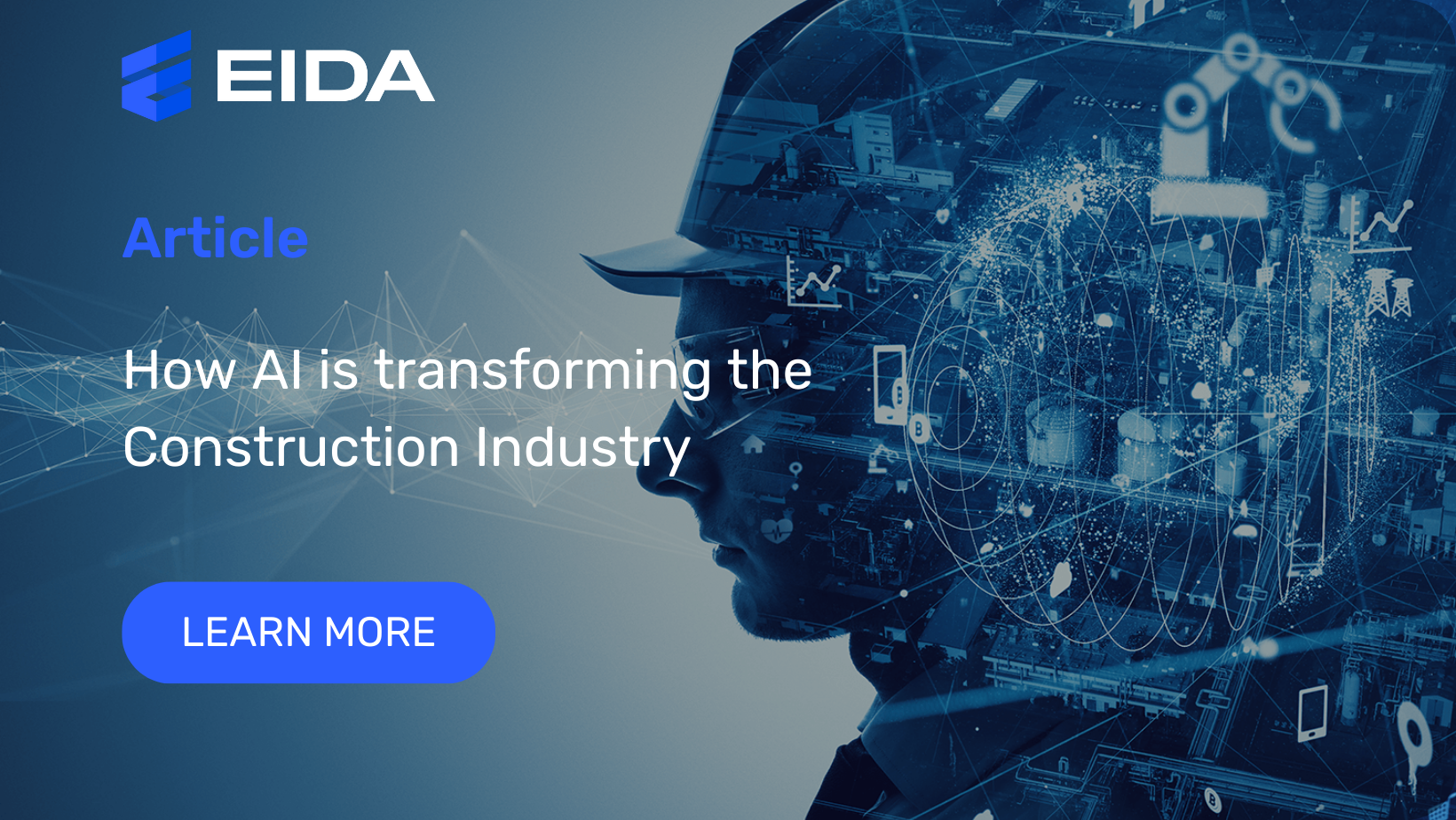
The construction industry has long been associated with labor-intensive processes and traditional techniques. Although adoption of new technologies and processes is considered generally slow compared to other industries, in recent years, Artificial Intelligence (AI) has emerged as a disruptive force that is being quickly leveraged.
What we are witnessing is a significant transformation with improved efficiency, safety and sustainability becoming par for the course. Embracing AI in construction is no longer an option but a necessity to stay competitive and deliver projects efficiently in 2023 and beyond.
In this article we will explore how AI is reshaping traditional construction practices and delivering significant benefits.
Enhanced Project Planning & Design
AI algorithms can be used to analyze vast amounts of data and generate valuable insights that are informing the decision-making process. By utilizing historical project data, AI can identify patterns and predict potential risks, enabling project managers to proactively address them. This helps with planning and designing the project to reduce project delays, cost overruns, and rework.
AI-powered design tools are also revolutionizing the architectural process. In particular, AI powered design software can generate optimized floor plans, structural designs, and building systems. These tools enable architects and engineers to explore multiple designs quickly, ensuring the best use of space, energy efficiency, and structural integrity.
All of that coupled with the right construction management, turnover and commissioning software leads to better-designed buildings that are functional, aesthetically pleasing, sustainable and delivered on time and on budget.
Improved Safety and Risk Mitigation
As we know building sites can be very dangerous places to work and in the US for example, since 2008, construction has experienced more total deaths than any other industry. Thankfully huge steps have been taken to combat this and change the culture to do more to protect workers and the public from risks and keep the job running on time.
One of the newest improvements is that AI-powered systems can analyze real-time data from sensors, cameras, and wearables to identify potential hazards and predict safety risks as well as automatically shutting down equipment in unsafe conditions.
Another safety progression is in AI-powered robotics and autonomous vehicles that are increasingly being used in dangerous/hazardous construction tasks. The advantage is that these technologies can perform repetitive and high-risk activities with precision and accuracy, reducing the exposure of workers to dangerous conditions.
We are also seeing new and improved training programs and safety protocols that are proactive in preventing accidents which is very welcome.
Efficient Project Management and Monitoring
Project management and monitoring is critical to the success of large and complex builds and AI is helping to streamline this. Complex construction projects involve multiple stakeholders, complex schedules, and extensive resource management and AI-powered project management tools can help optimize these. By analyzing project data and real-time information, AI can identify potential bottlenecks and suggest proactive measures to improve efficiency.
AI algorithms can also be employed to identify changes or deviations from the planned and agreed timeline or budget, enabling project managers to take necessary corrective actions/steps promptly. This level of automation and predictive analytics allows for improved project coordination and reduces the likelihood of delays.
Quality Control and Punch item Detection
Maintaining high quality standards in construction projects is important and expected. AI-based computer vision systems can inspect materials, identify defects and punch items, and ensure compliance with the agreed specifications and conditions. These systems can quickly detect deviations, reducing the need for manual inspections and expediting the quality control process.
With EIDA software, quality management is comprehensively addressed including punch items & defects, test records, weld history & NDT, factory acceptance testing (FAT), observations, and more.
Resource management
AI powered systems enable better resource management and procurement processes. It does this by analyzing historical data and construction trends which can help it accurately forecast material requirements, optimize inventory levels, and even automate the procurement process. This has the effect of minimizing material waste, reducing costs, and ensuring materials are available, thereby enhancing project productivity.
In conclusion, Artificial Intelligence is revolutionizing the construction industry by transforming traditional processes and enabling new and exciting possibilities. From enhanced project planning and design to efficient project management and monitoring, AI is driving efficiency, safety, and sustainability.
As AI continues to evolve, the construction industry can anticipate further advancements and an even more transformative future. The early adopters will reap the benefits.
